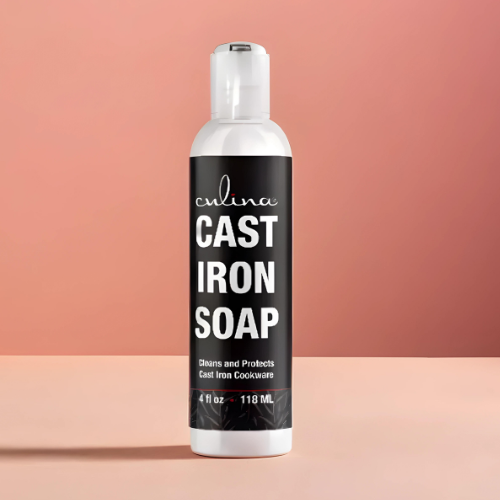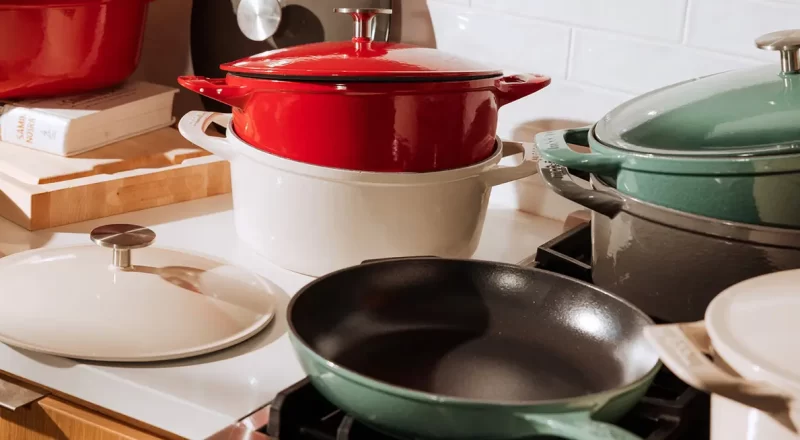A Dutch oven is a versatile and valuable piece of cookware that can last for generations if properly cared for. In this article, we will dive into the essential techniques on how to care for Dutch oven to ensure it continues to serve you well in your culinary adventures. From cleaning to seasoning, we’ll cover everything you need to know.

Introduction to Dutch Ovens
A Dutch oven is a heavy-duty pot known for its thick walls and tight-fitting lid. It is perfect for slow-cooking, braising, baking, and even frying. Known for their durability, Dutch ovens can be made from cast iron, enameled cast iron, or ceramic. However, to keep them in optimal condition, proper care is essential.

Why is Dutch Oven Maintenance Important?
Maintaining your Dutch oven not only extends its lifespan but also ensures that it remains safe and effective for cooking. Proper care prevents rust, preserves the seasoning, and maintains the non-stick qualities of the surface, making cooking and cleanup easier.
Understanding Seasoning in Cast Iron Dutch Ovens
Seasoning is a protective layer of polymerized oil baked onto the surface of your cast iron Dutch oven. This layer provides a natural, non-stick surface and helps prevent rust. Regular seasoning is vital for maintaining the performance and longevity of your Dutch oven.
Steps to Properly Season Your Dutch Oven
- Clean Thoroughly: Remove any food particles and rinse your Dutch oven with hot water.
- Dry Completely: Use a towel to dry your Dutch oven thoroughly to avoid any moisture that could cause rust.
- Apply Oil: Using a paper towel, apply a thin layer of vegetable oil, flaxseed oil, or a specialized cast iron oil.
- Heat the Oven: Place your Dutch oven in a preheated oven at 350F for one hour. Allow it to cool inside the oven.
- Repeat: For best results, repeat the oiling and heating process 2-3 times to build up a strong seasoning layer.

Cleaning Your Dutch Oven After Cooking
Proper cleaning is crucial to maintain the seasoning and prevent damage. Here are some approved and effective methods:
Using Hot Water and a Soft Brush
Rinse the Dutch oven with hot water immediately after use. Use a soft brush or sponge to remove any food residue. Avoid using soap as it can strip the seasoning.
Salt Scrub for Stubborn Residue
If there is stubborn residue, sprinkle coarse salt into the Dutch oven and scrub with a soft brush. The salt acts as a gentle abrasive without harming the seasoning.
Avoiding Harmful Cleaning Agents
Stay away from harsh detergents, which can damage the seasoning layer. Only use mild soap if absolutely necessary, and re-season the Dutch oven afterward.
Storing Your Dutch Oven
Proper storage is another critical aspect of Dutch oven care. Heres how to store it to keep it in top condition:
Ensure It Is Completely Dry
Before storing, make sure your Dutch oven is entirely dry to prevent rust. You can place it on a stovetop over low heat for a few minutes to evaporate any remaining moisture.
Use Paper Towels Between the Lid
Place a paper towel or cloth between the lid and the Dutch oven to allow air circulation and prevent moisture buildup. This simple trick helps in maintaining a rust-free surface.
Store in a Cool, Dry Place
Keep your Dutch oven in a cool, dry place. Avoid any damp areas, such as under the sink, where it may come in contact with water.
Repairing and Re-seasoning a Rusty Dutch Oven
If your Dutch oven starts to rust, dont worry! It can be restored with some effort:
- Scrub the Rust Off: Using steel wool or a wire brush, scrub away the rust until you reach clean metal.
- Wash and Dry: Wash the Dutch oven with mild soap and hot water, then dry completely.
- Re-season: Follow the seasoning steps mentioned above to restore the protective layer.
Routine Maintenance Tips
In addition to thorough cleaning and seasoning, regular maintenance helps keep your Dutch oven in top shape:
Avoid Metal Utensils
Using metal utensils can scratch the seasoned surface. Opt for wooden or silicone utensils to preserve the integrity of the seasoning.
Cook with Care
While Dutch ovens are durable, avoiding extreme temperature changes will prevent thermal shock and potential cracking.
Dry Before Storage
Always dry your Dutch oven thoroughly before storing to prevent rust.
Exploring Dutch Oven Recipes
Part of caring for your Dutch oven is using it frequently. Here are some terrific recipes to try:
External Resources for Further Reading
For more detailed guidance on Dutch oven care, check out Wiki How’s detailed guide.
FAQs
How often should I season my Dutch oven?
Its best to season your Dutch oven after every few uses, or whenever food starts to stick.
Can I use soap on my seasoned Dutch oven?
While its generally advised against using soap, mild soap can be used occasionally if necessary, but make sure to re-season afterward.
Why is my Dutch oven sticky after seasoning?
A sticky surface usually indicates too much oil was applied during seasoning. Try reapplying a thinner layer and baking it again.
Conclusion
Learning how to care for Dutch oven ensures that this valuable kitchen tool will serve you well for years to come. With the tips shared in this article, you can keep your Dutch oven in excellent condition, enabling it to be a reliable partner in your culinary journey. Happy cooking!
As an Amazon Associate, I earn from qualifying purchases.
For more information on cleaning your Dutch oven, refer to Serious Eats.

